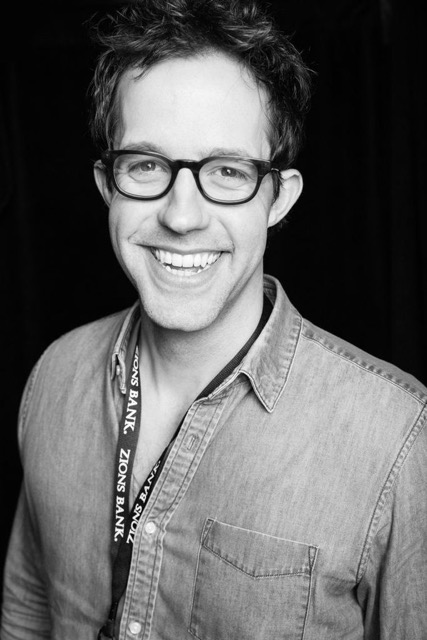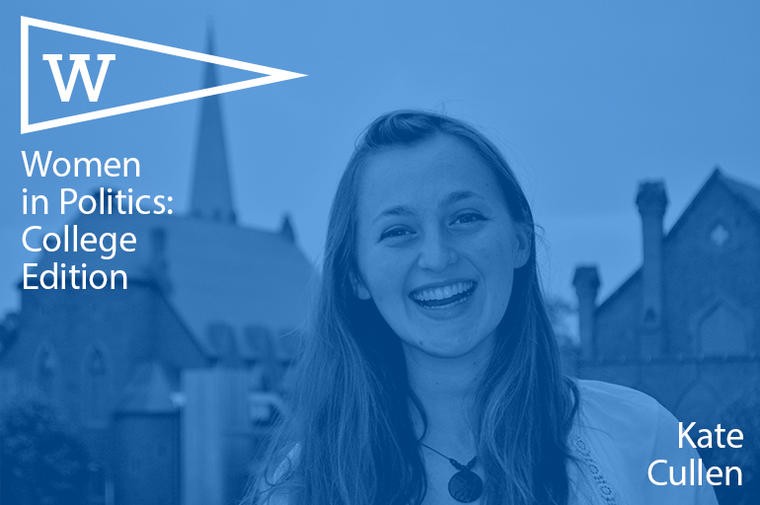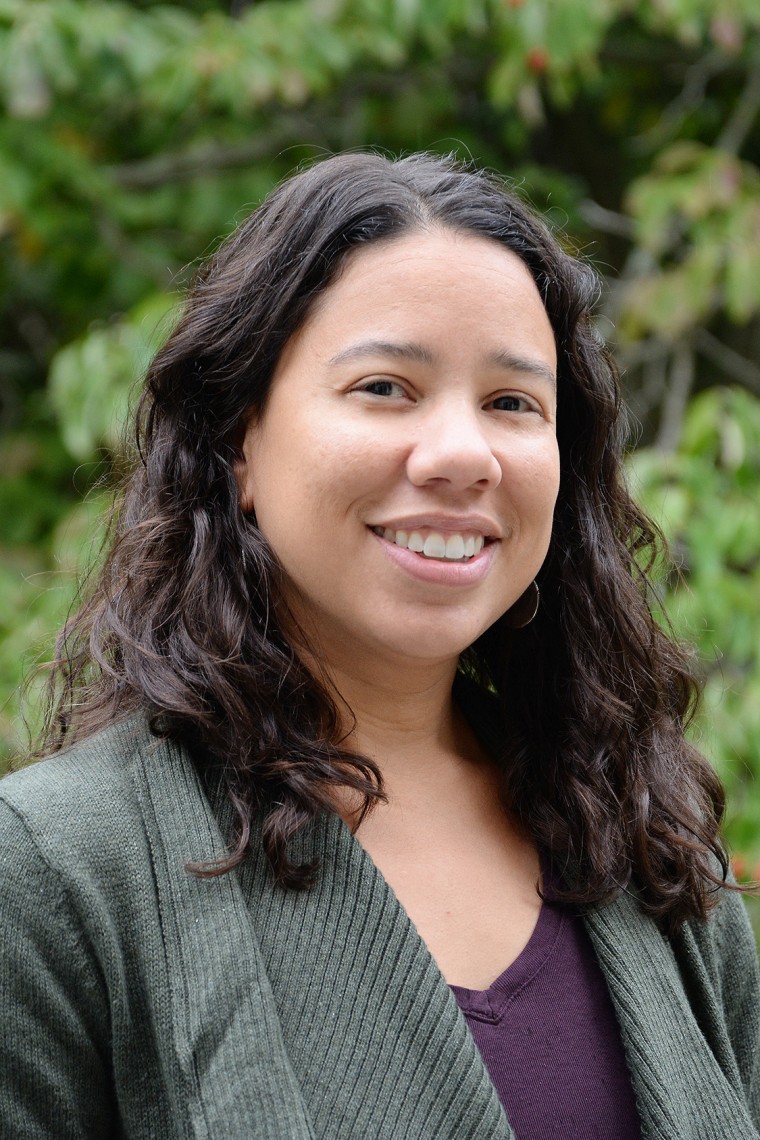In 2010-11, when Matthew Ball ’08 was stationed in the Tora Bora region of Nangarhar province, serving in the 4th Brigade of the 101st Airborne Division, he and the other soldiers relied on Qismat Amin, then only 19 years old, for both information and communication with the local Afghan residents. Now a Stanford law student, Ball is on a personal mission: To fulfill what he views as his duty to the young interpreter who worked with him during his deployment. "There's a really strong bond that a lot of soldiers have with interpreters—they're crucial members of the team. ... There…
Laura Walker ’79, New York Public Radio CEO, was recently interviewed by Fortune on the topic of women in the podcasting industry. She discussed how she got her start in radio, what business school was like for women in the 1980s, and why more women are needed in podcasting. Walker discussed the motivation to help start Werk It, WNYC’s annual festival for women in podcasting, which is funded by the Corporation for Public Broadcasting to get more women involved in podcasting. “I think that many women are natural storytellers and aren’t fearful of mixing the personal and the factual. I…
Nicholas Rasmussen '87, director of the National Counterterrorism Center, spoke on NPR's "Morning Edition" about progress made in the fight against the Islamic State. He said the tactical gains the U.S. military and its partners are making in Iraq and Syria are a "necessary" part of quashing the danger it poses—but not "sufficient." Rasmussen told NPR that government agencies—ranging from federal to local—are working well together, and counterterrorism leaders are confident they can detect, disrupt or stop big, complicated attacks on the scale of Sept. 11, 2001. But the danger remains from smaller-scale attacks directed or inspired by ISIS, and these may linger…
Peter Rutland, the Colin and Nancy Campbell Professor in Global Issues and Democratic Thought, was interviewed on BYUradio about the Olympics and nationalism. "The Olympics are practically built for indulging in what you might call 'good nationalism,' as opposed to the xenophobic kind," said host Julie Rose in the introduction. Yet this year's Olympic Games come at a time of fear of outsiders, both in the U.S. and abroad. They begin by discussing the difference between patriotism—which has more positive connotations—and nationalism, which implies dislike of foreigners. The key distinction, says Rutland, is about having respect for people from all countries.…
Kali Nicole Gross, professor of African American studies, writes in The Huffington Post about the case of Korryn Gaines, the latest death of an African American at the hand of police. Gaines was fatally shot after a five-hour standoff with police and SWAT officers in Maryland, and had prophesied her own demise during an earlier traffic stop, in which she had also been defiant. While Gaines' behavior may once have appeared irrational, and possibly a sign of mental illness, Gross writes, "after these and so many other deaths of black women and men killed during minor traffic stops, killed for selling loose cigarettes, or…
Forbes magazine has featured Wesleyan among the top 10 in its list of America’s Top Colleges 2016. Ranked at number 9, it shares the highest echelon with major research universities including Stanford, Princeton and Harvard, and liberal arts colleges like Williams, Pomona and Swarthmore. The Forbes ranking is based on a weighted three-year moving average of each school’s total score. Critical factors include student satisfaction (measured by faculty ratings and freshman-to-sophomore retention rates), post-graduate success (alumni salaries and alumni on American Leaders List), academic success (alumni receiving PhDs and student nationally competitive awards), student debt, and four-year graduation rates. President…
Hannah Levin '19 recently interviewed Peter Cambor '01, an actor on Showtime's Roadies, about his career and his time at Wesleyan. The interview appears on Master Chat Mag, a website Levin has been running since her sophomore year of high school, which serves as a resource for students who are passionate about TV, film, theater and comedy and wish to work in the field one day. Cambor has starred in television series including Notes from the Underbelly and NCIS: Los Angeles. In the interview with Levin, he talks about catching the acting bug in high school, and about how his time at Wesleyan fueled his creativity:…
In a July 11 Roth on Wesleyan blog, President Michael Roth responds to two recent killings of black men by police officers in Louisiana and Minnesota, and the murders of five police officers in Texas. In the blog, titled, "On What Matters" Roth shares his own thoughts and the reflections of others that he found meaningful. He writes: Too often I have written blog posts about tragedies, violence, injustice. From attacks in other parts of the world to devastation right here in the USA, I have expressed sorrow, anger—and often a feeling of solidarity with those who have suffered, are suffering. Readers have pointed out that…
Kate Cullen ’16, an earth and environmental science and history major from Bethesda, Md., was selected for MSNBC's Women in Politics: College Edition series. The president of the Wesleyan Student Assembly, Cullen received the University's nomination "as a leader making a difference not only through key issues on campus, but in bridging the gender gap in politics." MSNBC plans to use the series to highlight women candidates and as a springboard for national conversations on women's issues. Cullen, who has "been fortunate to have a lot of strong female role models," says she was motivated to work in student government…
In a video interview with central Florida's WESH to celebrate the opening of the newest location of Sprinkles Cupcakes at Disney Springs, the store's founder Candace Nelson ’96 offered a brief frosting tutorial. "All of our cupcakes at Sprinkles are hand-frosted," she noted. "You can actually come to our store at Disney Springs and see those cupcakes being frosted in our frosting theater. All of our frosters are in a cute little window so you can see them do their magic at Sprinkles." Additionally, she said that cupcakes ATMs are open until 2 a.m. for those on the late-night prowl: "It's technology and pleasure coming…
Writing in The Washington Post, Lori Gruen, the William Griffin Professor of Philosophy, argues that fingers are being pointed in the wrong direction after Harambe, an endangered lowland gorilla, was shot and killed at the Cincinnati Zoo after a 4-year-old child entered his enclosure. "The real culprits are zoos," she writes. Many in the animal protection community contend that the gorilla didn't pose a real threat to the boy, and are questioning if zoo staff did enough to try to separate Harambe from the child. Others are blaming the boy's mother for not properly supervising him. Gruen writes: For me, the real question is…
Martha Gilmore, George I. Seney Professor of Geology, professor and chair of earth and environmental sciences, joined legendary astronaut and engineer Buzz Aldrin and Hoppy Price of NASA's Jet Propulsion Laboratory for a discussion on WNPR about the past, present and future of space exploration. The three were guests on The Colin McEnroe Show on May 25. Aldrin, who was one of the first two humans to walk on the moon, is the author of a new book, No Dream is Too High: Life Lessons From a Man Who Walked on the Moon. McEnroe asked Gilmore about our current level of understanding…




